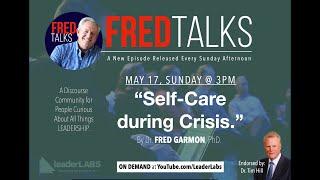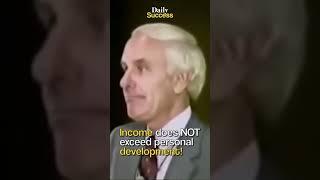Briefing by Volker Türk, United Nations High Commissioner for Human Right, on the human rights situation in the Democratic People's Republic of Korea (DPRK).
UN High Commissioner for Human Rights Volker Türk said, “Today, the DPRK is a country sealed off from the world. A stifling, claustrophobic environment, where life is a daily struggle devoid of hope.”
Addressing the Security Council today (12 Jun) on the human rights situation in the Democratic People’s Republic of Korea (DPRK) Türk said, “The protracted nature of this situation is trapping people in unmitigated suffering. It is also a factor behind instability with wider regional ramifications. It is not possible to divorce the state of human rights in the DPRK from considerations around peace and security in the peninsula, including increasing militarization on the part of the DPRK.”
He also said, “In short, we are witnessing a situation where people can no longer leave even when they are in the most desperate of circumstances or at peril of persecution.”
He stressed, “Put simply, people in the DPRK are at risk of death for merely watching or sharing a foreign television series.”
He continued, “Arbitrary detention, torture and ill-treatment, and a lack of fair trials are ongoing tactics of repression. I have also consistently raised the tragic issue of enforced disappearance both inside the DPRK and of citizens of other countries, notably the Republic of Korea and Japan.”
He noted, “This Council is uniquely placed to address the growing isolation of the DPRK which is a driver of both human rights violations and regional instability. It is really critical for the international community to be creative in finding ways to revive dialogue.”
He then urged the Government of the DPRK to “flip the orthodoxies and overcome its isolationist mindset which only breeds deeper and deeper distrust, setting off a never-ending spiral of groupthink at the expense of a more prosperous and secure future for its people.”
He concluded, “Human rights in all their dimensions offer a solution and a way forward.”
Also addressing the Council, Elizabeth Salmón, Special Rapporteur on the situation on human rights in the Democratic People's Republic of Korea said, “The continued prioritization of its military, nuclear, and missile programs, places a high “military burden” on its people and disproportionately affects those most vulnerable, such as children and women. Resources available for realizing human rights are reduced, exploitation of labor to finance militarization becomes rampant, and as a result, the protection of fundamental freedoms and human rights is often overlooked.”
She also said, “Looking back at the past four years of the border closures, the human rights situation has undeniably deteriorated. We are facing probably the worst humanitarian crisis since the disastrous famine in the late 1990s. The international community, yet again, is failing to pay sufficient attention and the plight and voices of the people of the DPRK are not being heard.”
Before the Council’s meeting, Joonkook Hwang, Permanent Representative of the Republic of Korea, delivered to the media a joint statement on human rights in DPRK, on behalf of 57 UN Member States and the delegation of the European Union.
He said, “The DPRK’s oppressive political and social system has allowed it to remain in power and vigorously develop nuclear and missile capabilities. The DPRK’s exploitation of its citizens, domestically and overseas, including through forced labor, generates revenues that finance its weapons programs. As such, we now call on all UN Member States to join us in taking action to bring concrete change that improves the welfare of people in the DPRK and contributes to a more peaceful and secure world.”
Also addressing the media this morning about the Security Council meeting on the DPRK, Joaquin A. Perez-Ayestaran, Deputy Representative of Venezuela read a Special Communique issued by the Group of Friends in Defense of the Charter of the United Nations.
He said, “The Member States of the Group of Friends in Defense of the Charter of the United Nations commend the efforts of the government of the Democratic People’s Republic of Korea in many fields, including on human rights, with the purpose of ensuring the well-being and prosperity of its people. We call on the continuation of such efforts, as well as on the need to ensure that they are nationally owned while stressing the primary role of the government of the Democratic People’s Republic of Korea and its institutions in this regard.”
He concluded, “The Group of Friends in Defense of the Charter of the United Nations calls for an end to the ongoing practice of the Security Council of dealing with issues and situations beyond its mandate, including by addressing human rights issues, in pursuit of certain States’ political objectives.”
UN High Commissioner for Human Rights Volker Türk said, “Today, the DPRK is a country sealed off from the world. A stifling, claustrophobic environment, where life is a daily struggle devoid of hope.”
Addressing the Security Council today (12 Jun) on the human rights situation in the Democratic People’s Republic of Korea (DPRK) Türk said, “The protracted nature of this situation is trapping people in unmitigated suffering. It is also a factor behind instability with wider regional ramifications. It is not possible to divorce the state of human rights in the DPRK from considerations around peace and security in the peninsula, including increasing militarization on the part of the DPRK.”
He also said, “In short, we are witnessing a situation where people can no longer leave even when they are in the most desperate of circumstances or at peril of persecution.”
He stressed, “Put simply, people in the DPRK are at risk of death for merely watching or sharing a foreign television series.”
He continued, “Arbitrary detention, torture and ill-treatment, and a lack of fair trials are ongoing tactics of repression. I have also consistently raised the tragic issue of enforced disappearance both inside the DPRK and of citizens of other countries, notably the Republic of Korea and Japan.”
He noted, “This Council is uniquely placed to address the growing isolation of the DPRK which is a driver of both human rights violations and regional instability. It is really critical for the international community to be creative in finding ways to revive dialogue.”
He then urged the Government of the DPRK to “flip the orthodoxies and overcome its isolationist mindset which only breeds deeper and deeper distrust, setting off a never-ending spiral of groupthink at the expense of a more prosperous and secure future for its people.”
He concluded, “Human rights in all their dimensions offer a solution and a way forward.”
Also addressing the Council, Elizabeth Salmón, Special Rapporteur on the situation on human rights in the Democratic People's Republic of Korea said, “The continued prioritization of its military, nuclear, and missile programs, places a high “military burden” on its people and disproportionately affects those most vulnerable, such as children and women. Resources available for realizing human rights are reduced, exploitation of labor to finance militarization becomes rampant, and as a result, the protection of fundamental freedoms and human rights is often overlooked.”
She also said, “Looking back at the past four years of the border closures, the human rights situation has undeniably deteriorated. We are facing probably the worst humanitarian crisis since the disastrous famine in the late 1990s. The international community, yet again, is failing to pay sufficient attention and the plight and voices of the people of the DPRK are not being heard.”
Before the Council’s meeting, Joonkook Hwang, Permanent Representative of the Republic of Korea, delivered to the media a joint statement on human rights in DPRK, on behalf of 57 UN Member States and the delegation of the European Union.
He said, “The DPRK’s oppressive political and social system has allowed it to remain in power and vigorously develop nuclear and missile capabilities. The DPRK’s exploitation of its citizens, domestically and overseas, including through forced labor, generates revenues that finance its weapons programs. As such, we now call on all UN Member States to join us in taking action to bring concrete change that improves the welfare of people in the DPRK and contributes to a more peaceful and secure world.”
Also addressing the media this morning about the Security Council meeting on the DPRK, Joaquin A. Perez-Ayestaran, Deputy Representative of Venezuela read a Special Communique issued by the Group of Friends in Defense of the Charter of the United Nations.
He said, “The Member States of the Group of Friends in Defense of the Charter of the United Nations commend the efforts of the government of the Democratic People’s Republic of Korea in many fields, including on human rights, with the purpose of ensuring the well-being and prosperity of its people. We call on the continuation of such efforts, as well as on the need to ensure that they are nationally owned while stressing the primary role of the government of the Democratic People’s Republic of Korea and its institutions in this regard.”
He concluded, “The Group of Friends in Defense of the Charter of the United Nations calls for an end to the ongoing practice of the Security Council of dealing with issues and situations beyond its mandate, including by addressing human rights issues, in pursuit of certain States’ political objectives.”
- Category
- United Nations
- Tags
- UN, United Nations, UNGA
Be the first to comment













